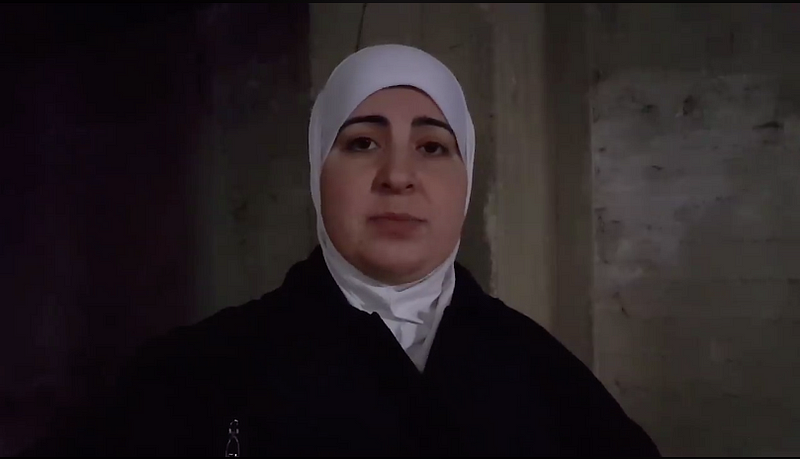
Hadi al-Abdullah:
"Many mistakes have happened in the Syrian revolution, and it is difficult to sum them up in an sentence or two. This is first time the Syrian people have carried out a popular revolution. The Syrian situation is different from other countries' revolutions, due to the support of the Great Powers for the Assad régime. Perhaps the most important and notable errors: Disunity without the presence of any unified military, political or even media leadership, and the Syrian revolution is still making this mistake to this day. The second is dependency on the exterior, compared to 2012 and 2013 when the decision was Syrian only, and what led to our arrival at this stage recently from following the exterior which caused a great loss to the people and revolution. One of the mistakes as well was the confidence in the leaders of the factions, the Syrians have relied on them because there was no other solution to resort to.
There are various ways to confront the promoters of reconciliation or "frogs": The Syrians must adhere to the principles of the Syrian revolution for which we have sacrificed much. Second, through awareness campaigns for the popular incubator urging adherence to the revolutionary principles and clarifying the danger of reconciliation with the Assad régime and his betrayal, he and his Russian ally who promote a false narrative regarding returning to the fold of al-Assad. We observe that he in a number of areas has expelled the revolutionaries and civilians from it and there are cases of arrest by Russia and the Assad forces on a daily basis, including in the Homs countryside, Eastern Ghouta, and the areas of Daraa. There needs to be pressure on the factions not to carry out any reconciliation with the Assad regime, in addition to dealing firmly with those who promote reconciliation in the north of Syria, and this is what the factions started with recently.
We all know that Idlib turned into a mini-Syrian state inhabited by most of the Syrians displaced by the Assad régime from the rest of the country. It is the last refuge for them after they refused to reconcile with the régime. The fate of the city of Idlib is different from the other regions because it has observation points for protection, and we do not expect Turkey to forsake the province and its countryside, because it will reflect negatively on them, and there will be hundreds of thousands of displaced people on the Turkish border, and it is not easy to forsake them under these circumstances. Everyone in Idlib knows that it is the last point or bastion of the Syrian revolution today. If the régime would launch a war on Idlib there will be a strong response in defense of it and it could be the start for retaking control of the areas occupied by the régime and its allies. And there are efforts that have recently begun to form a unified force in Idlib to confront the regime composed of several large factions, except for HTS and others.
The restoration of political or military autonomy under the current circumstances is almost impossible. Most military or political leaders became dependent on the exterior and the restoration of political autonomy needs raising awareness, through citizens carrying out popular initiatives to return the spirit of the Syrian revolution and hope to the souls of the civilians. Restoring political autonomy is very difficult and not easy.
The restoration of political or military autonomy under the current circumstances is almost impossible. Most military or political leaders became dependent on the exterior and the restoration of political autonomy needs raising awareness, through citizens carrying out popular initiatives to return the spirit of the Syrian revolution and hope to the souls of the civilians. Restoring political autonomy is very difficult and not easy.
There have been many bad moments for me from seven years ago until now, from threats, targeting, bombing, to assassination attempts. Among the most difficult was the year 2016 in Aleppo when Khaled al-Issa was martyred, in addition to the loss of the people we love. And the most difficult is trying to traverse the situations of sadness.
There is no doubt that the conditions experienced by the Syrians today are difficult and most of them suffer from all kinds of pressure, but there is no solution other than resistance against the Assad régime, especially since the régime has not changed. For those who are in the interior; sticking to the land and for all outside Syria; sticking to the cause. Despite the setbacks and betrayals that we are facing, we will remain steadfast upon the principles of the revolution and its martyrs and detainees. We direct a message to the faction leaders to unite and form a unified body and a united leadership different from what we have seen before."
There is no doubt that the conditions experienced by the Syrians today are difficult and most of them suffer from all kinds of pressure, but there is no solution other than resistance against the Assad régime, especially since the régime has not changed. For those who are in the interior; sticking to the land and for all outside Syria; sticking to the cause. Despite the setbacks and betrayals that we are facing, we will remain steadfast upon the principles of the revolution and its martyrs and detainees. We direct a message to the faction leaders to unite and form a unified body and a united leadership different from what we have seen before."
Note 5/8/25, link broken.






